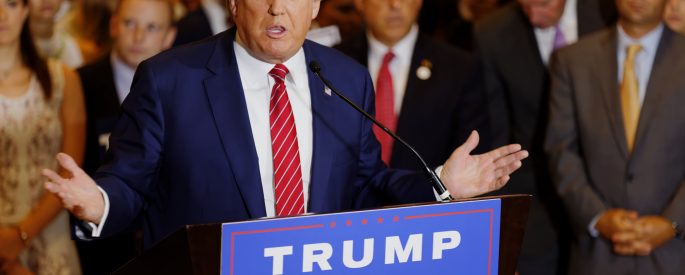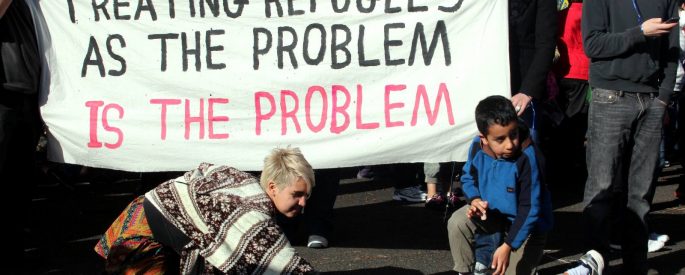Series Archive
How Political Campaigns Are Like Novels

By this point in a presidential campaign, a candidate and his or her handlers have, like any good writer, spent dozens if not hundreds of hours fine-tuning their story. A candidate’s story has all the key elements of a novel: a hero (the candidate him/herself), the plot (the candidate’s
Out of the Blue and Onto the Page: How Translation Rekindled My Passion for Writing

When my mother, born in America to Israeli parents, first met my father in Tel Aviv, she said she knew he was right for her because he was an American living in Israel. As a young woman who grew up in transit—constantly being moved around between the two countries—she
The Best Short Story I Read in a Lit Mag This Week: “Off Days” by Shane Jones
In the flash fiction piece “Off Days” (The Adroit Journal), Shane Jones captures the comedy in the small moments characteriing his day-by-day struggles with memory loss before a full shift in his reality becomes manifest. We meet Ted and his wife Gina at the supermarket. Ted mistakes a younger
The Best Poem I Read This Month: Cortney Lamar Charleston’s “I’m Not a Racist”

Cortney Lamar Charleston’s “I’m Not a Racist,” published in One Throne Magazine, is an all-too-relevant rendering of “fair and balanced” evil. The poem, organized in couplets and single-standing lines, presents a mash-up of thoughts from a speaker who claims “I’m not a racist / I’m a realist,” in order
The Best Short Story I Read in a Lit Mag This Week: “Men and Women Like Him” by Amber Sparks
In “Men and Women Like Him” (Guernica), Amber Sparks explores dark tourism from the perspective of a time traveling tour guide who must ensure that historical tragedies don’t change—even when those tragedies become personal.Sparks drops us right into scene in the first couple paragraphs, letting the action and scenario
Big Picture, Small Picture: Context for Chinua Achebe’s Things Fall Apart

In January 1959 Chinua Achebe’s debut novel, Things Fall Apart, is first published in the US. The novel follows Okonkwo, a leader in the Igbo tribe, as he negotiates personal tragedy amid the arrival of British Colonial forces into Africa in the late nineteenth century.
The Best Short Story I Read in a Lit Mag This Week: “The Matchmaker” by Karen Palmer
In “The Matchmaker” (James Franco Review), Karen Palmer stays tight to her characters’ moment-by-moment experiences, which helps the potentially polarizing events of the story elude simple definitions. What’s revealed is the tragedy of a mental institution unable to adequately serve the population it’s responsible for. In the opening few
Mirrored Crisis: What Jeffrey Eugenides’s MIDDLESEX can show us about today’s refugee crisis

We’ve been here before. The scenes we’ve seen and read about in the refugee crisis that has overwhelmed Eastern and Western Europe—Alan Kurdi cradled by the Turkish officer, people bearing their possessions on their backs held back by border police, and the drowned misery of the camps in Lesvos—have
The Best Short Story I Read in a Lit Mag This Week: “Beach Boys” by Michelle Meyers
In these modern times, we have greater access to the news of the wide world than ever before. In the flash fiction piece “Beach Boys” (decomp), Michelle Meyers explores two twins who tried their best to avoid the headlines of their times, only to be drawn in despite their
The Best Short Story I Read in a Lit Mag This Week: “Brought to Shore” by Nicholas Olson
Patients with terminal conditions face many difficulties outside of the symptoms themself. In “Brought to Shore” (SmokeLong Quarterly), Nicholas Olson explores a family struggling through the emotional realities of a parent living on borrowed time. Olson opens the story with a memory of a camping trip with the narrator’s